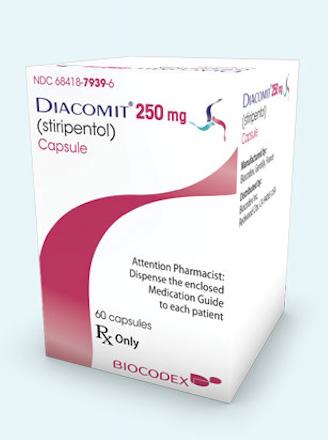Stiripentol Disease Interactions
There are 7 disease interactions with stiripentol.
- Suicidal tendency
- Decreased appetite/weight
- Hepatic impairment
- Neutropenia/thrombocytopenia
- Phenylketonuria
- Renal impairment
- Somnolence
Antiepileptics (applies to stiripentol) suicidal tendency
Moderate Potential Hazard, Moderate plausibility. Applicable conditions: Depression, Psychosis
Antiepileptic drugs (AEDs) have been associated with an increased risk of suicidal thoughts or behavior in patients taking these drugs for any indication. Pooled analyses of 199 placebo-controlled clinical studies involving the use of 11 different AEDs showed that patients receiving AEDs had approximately twice the risk of suicidal thinking or behavior compared to patients receiving placebo. AEDs should be administered cautiously in patients with depression or other psychiatric disorders; phentermine-topiramate should be avoided in patients with history of suicidal attempts or active suicidal ideation. The risk of suicidal thoughts and behavior should be carefully assessed against the risk of untreated illness, bearing in mind that epilepsy and many other conditions for which AEDs are prescribed are themselves associated with morbidity and mortality and an increased risk of suicidal thoughts and behavior. Patients, caregivers, and families should be alert to the emergence or worsening of signs and symptoms of depression, any unusual changes in mood or behavior, or the emergence of suicidal thoughts or behavior. If patients have symptoms of suicidal ideation or behavior, a dosage reduction or treatment discontinuation should be considered.
Stiripentol (applies to stiripentol) decreased appetite/weight
Moderate Potential Hazard, Moderate plausibility. Applicable conditions: Malnourished, Weight Loss/Failure to Thrive
Stiripentol can cause decreases in appetite and weight; nausea and vomiting also occurred more often in stiripentol-treated patients. The growth of pediatric patients should be carefully monitored. In some cases, decreasing the dose of concomitant valproate by 30% per week can reduce the decrease in appetite and weight. Caution should be exercised when prescribing this agent to patients at risk.
Stiripentol (applies to stiripentol) hepatic impairment
Moderate Potential Hazard, Moderate plausibility. Applicable conditions: Liver Disease
Stiripentol is mainly metabolized by the liver. There has been no formal study of the pharmacokinetics of stiripentol in patients with liver dysfunction. Therefore, the administration of stiripentol to patients with moderate or severe liver dysfunction is not recommended.
Stiripentol (applies to stiripentol) neutropenia/thrombocytopenia
Moderate Potential Hazard, Moderate plausibility. Applicable conditions: Bone Marrow Depression/Low Blood Counts, Immunodeficiency
Stiripentol can cause a significant decline in neutrophil and platelet counts. Care should be exercised when prescribing this agent to immunosuppressed patients and those with bone marrow suppression. Hematologic testing should be obtained before starting treatment, and then every 6 months.
Stiripentol (applies to stiripentol) phenylketonuria
Moderate Potential Hazard, Moderate plausibility.
Stiripentol for oral suspension contains phenylalanine, a component of aspartame. Phenylalanine can be harmful to patients with phenylketonuria (PKU). Before prescribing stiripentol for oral suspension to a patient with PKU, it is recommended to consider the combined daily amount of phenylalanine from all sources (including this product). Stiripentol capsules do not contain phenylalanine.
Stiripentol (applies to stiripentol) renal impairment
Moderate Potential Hazard, Moderate plausibility. Applicable conditions: Renal Dysfunction
Stiripentol metabolites are eliminated mainly through the kidney. There is no formal study on the pharmacokinetics and metabolism of stiripentol in patients with renal dysfunction. Therefore, the administration of stiripentol to patients with moderate or severe renal dysfunction is not recommended.
Stiripentol (applies to stiripentol) somnolence
Moderate Potential Hazard, Moderate plausibility. Applicable conditions: CNS Disorder
Stiripentol can cause somnolence. If somnolence occurs during coadministration with clobazam, an initial reduction of clobazam by 25% should be considered. If somnolence persists, further clobazam reduction by an additional 25% should be considered, as well as adjustment of the dosage of other concomitant anticonvulsant drugs with sedating properties. Caution should be exercised when prescribing this agent to patients with CNS disorders. Prescribers should monitor patients for somnolence and should caution patients against engaging in hazardous activities requiring mental alertness (e.g., operating dangerous machinery/motor vehicles) until they know how stiripentol affects them.
Switch to professional interaction data
Stiripentol drug interactions
There are 622 drug interactions with stiripentol.
Stiripentol alcohol/food interactions
There is 1 alcohol/food interaction with stiripentol.
More about stiripentol
- stiripentol consumer information
- Check interactions
- Compare alternatives
- Side effects
- Dosage information
- During pregnancy
- Drug class: gamma-aminobutyric acid reuptake inhibitors
- Breastfeeding
- En español
Related treatment guides
Drug Interaction Classification
| Highly clinically significant. Avoid combinations; the risk of the interaction outweighs the benefit. | |
| Moderately clinically significant. Usually avoid combinations; use it only under special circumstances. | |
| Minimally clinically significant. Minimize risk; assess risk and consider an alternative drug, take steps to circumvent the interaction risk and/or institute a monitoring plan. | |
| No interaction information available. |
See also:
Further information
Always consult your healthcare provider to ensure the information displayed on this page applies to your personal circumstances.


